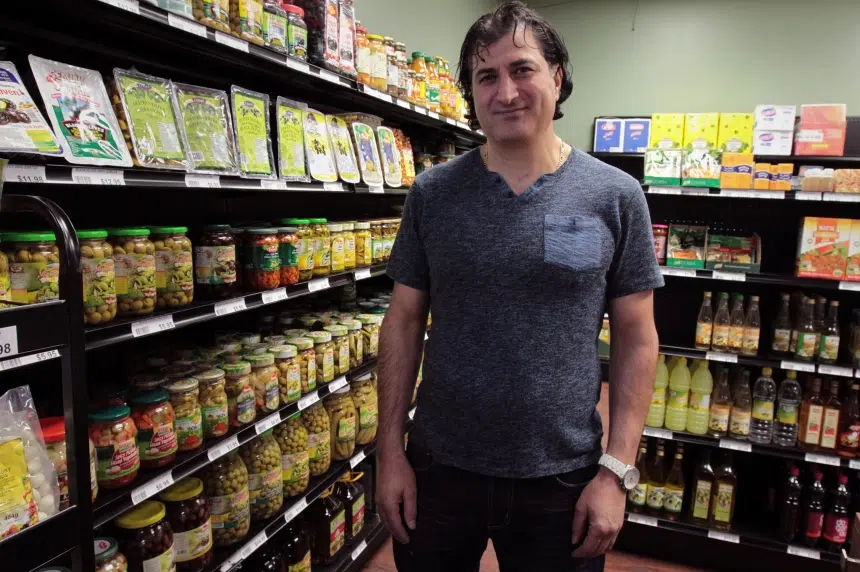Saskatoon’s new Syrian refugees are finding a little taste of home at a local specialty market.
Petra Market has more than 2,000 items lining the shelves of their small store on Primrose Drive. Nearly all of them come directly from Middle Eastern countries, including Syria.
“(Syrian refugees) are excited to find we have middle eastern food. They say ‘Oh we used to buy it there,’ so they feel more comfortable and relaxed,” co-owner Raed Hadad said.
Hadad opened shop in 2012 after moving to Saskatoon from Ontario and realizing he couldn’t find many foods from his home country of Jordan. Before they decided to go into business, his family would drive to Edmonton every few months to stock up.
Now, he’s working closely with the Global Gathering Place (GGP) to coordinate trips to the store and hand out coupons. He said items such as spices, tea and pita bread go quickly.
“We Middle Eastern, we like to eat everything with bread, even with rice and potatoes, it don’t make no difference,” Hadad said with a laugh.
The increased customer base has also helped the business. Hadad said they hired an extra hand to help during busy hours. His brother and co-owner also volunteers with local refugee groups.
Hadad said they offer their own advice to newcomers, having experience with adjusting to life in Canada.
“In the beginning it’s going a little bit hard, but don’t give up. We all went through it – English language, buses,” he said.
Immigration, Refugees and Citizenship Canada’s data shows Saskatchewan received 1,094 of the 25,000 Syrian refugees the federal government brought to Canada. Most of the families are taxpayer-funded. The refugees are split between Regina (447), Saskatoon (439), Moose Jaw (113), Prince Albert (87), and Lumsden (8).
GGP’s Lori Steward said it has been a busy time for immigration groups, but support and donations from the community have helped. She said an army of volunteers have pitched in with everything from donations to Arabic translation services.
She said most families now have permanent housing, with just a few new arrivals waiting in hotels.
“I think that feeling at home is going to come with a bit of time. Right now they’re worried about people back home … and it’s a big change for a lot of people, so there’s a lot of adjustments to make when they come here, but for the most part everyone is positive,” she said.
She said basic necessities like learning where to get food, how to ride the bus or set up a bank account are straightforward, but becoming part of the community will take time. That’s why the group focuses on letting refugees know what activities are available to them to get them involved.







